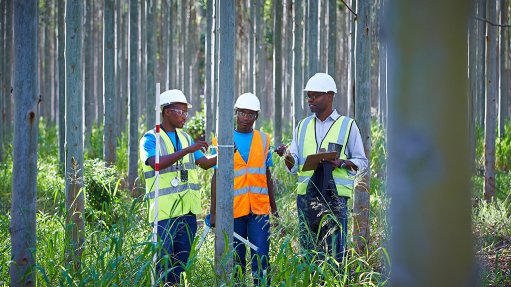Recycled SoNA priorities
As the famous slogan goes, there are three Rs as far as waste management is concerned: reduce, reuse, recycle. But shouldn’t there be a fourth R – rethink? Or rather five, with the sequence being reduce, reuse, repair, rot and recycle? Some would argue there are seven: recycle, refuse, reduce, reuse, repair, re-gift and recover.
In similar vein, just how many priority interventions is the South African government pursuing? Pick a number, any number, from one to eight.
In the 2021 State of the Nation Address (SoNA), the President mentioned four priorities, namely a massive infrastructure roll-out throughout the country, a massive increase in local production, an employment stimulus to create jobs and support livelihoods, and the rapid expansion of our energy generation capacity.
On government’s website, there are four priorities too, and these are to defeat the Covid-19 pandemic, to accelerate economic recovery, to implement economic reforms to create sustainable jobs and drive inclusive growth, and to fight corruption and strengthen the State.
In the 2022 SoNA, on February 10, the President stated: “We remain focused on the priorities we identified in the SoNA last year” and proceeded to list five: overcoming the Covid-19 pandemic, a massive roll-out of infrastructure, a substantial increase in local production, an employment stimulus to create jobs and support livelihoods, and the rapid expansion of our energy generation capacity.
Spoiler alert. In the words of Ramsay Snow, from Game of Thrones, “If you think this has a happy ending, you haven’t been paying attention.” Oh, I forgot, last week’s column, titled ‘Priorities not achieved’, was the spoiler alert, and updating it with the 2022 SoNA would make for an even more miserable ending.
It is time for government to, at the very least, get its priorities straight. A good first step would be to explicitly state how many priorities it has. In the words of Stephen Covey, author of The 7 Habits of Highly Effective People: “The key is not to prioritise what is on your schedule, but to schedule your priorities.” This begs the question: Are government’s priorities ranked according to prominence?
When comparing the priorities in the 2021 and 2022 SoNAs, you will notice that there is a change in the wording of certain objectives.
In the 2021 SoNA, the wording to “defeat the Covid-19 pandemic” was used, but in 2022, this became “overcoming the Covid-19 pandemic”. Further, one of the 2021 priorities, “a massive roll-out of infrastructure throughout the country”, morphed into “a massive roll-out of infrastructure” in 2022, with no indication of the extent of the roll-out, while the 2021 priority to undertake “a massive increase in local production” was changed to “a substantial increase in local production” in 2022. ‘Massive’ means exceptionally large, while ‘substantial means considerable, which is itself considered a large amount. The choice of words is, at the very least, ambiguous.
Three priorities on the 2021 list vanished when the President delivered this year’s SoNA. These are to “accelerate economic recovery”, “implement economic reforms to create sustainable jobs and drive inclusive growth”, and “fight corruption and strengthen the State”. Are these not priorities anymore?
The priorities that were not changed are “an employment stimulus to create jobs and support livelihoods”, and “the rapid expansion of our energy generation capacity”.
Recycled priorities are not helpful, and neither is ambiguity. As management guru Peter Drucker famously said, “If you can’t measure it, you can’t manage it.” Government’s priorities are obviously unmeasurable and, consequently, unmanageable.
As the blog Forget About Priorities: Choose Your Priority Instead reminds us, one needs to consider the origin of the word ‘priority’, which is from the Latin prioritas, which mean first in rank, order or dignity. Thus, there can be only one first thing, one priority. Essentially, government has eight.
Comments
Press Office
Announcements
What's On
Subscribe to improve your user experience...
Option 1 (equivalent of R125 a month):
Receive a weekly copy of Creamer Media's Engineering News & Mining Weekly magazine
(print copy for those in South Africa and e-magazine for those outside of South Africa)
Receive daily email newsletters
Access to full search results
Access archive of magazine back copies
Access to Projects in Progress
Access to ONE Research Report of your choice in PDF format
Option 2 (equivalent of R375 a month):
All benefits from Option 1
PLUS
Access to Creamer Media's Research Channel Africa for ALL Research Reports, in PDF format, on various industrial and mining sectors
including Electricity; Water; Energy Transition; Hydrogen; Roads, Rail and Ports; Coal; Gold; Platinum; Battery Metals; etc.
Already a subscriber?
Forgotten your password?
Receive weekly copy of Creamer Media's Engineering News & Mining Weekly magazine (print copy for those in South Africa and e-magazine for those outside of South Africa)
➕
Recieve daily email newsletters
➕
Access to full search results
➕
Access archive of magazine back copies
➕
Access to Projects in Progress
➕
Access to ONE Research Report of your choice in PDF format
RESEARCH CHANNEL AFRICA
R4500 (equivalent of R375 a month)
SUBSCRIBEAll benefits from Option 1
➕
Access to Creamer Media's Research Channel Africa for ALL Research Reports on various industrial and mining sectors, in PDF format, including on:
Electricity
➕
Water
➕
Energy Transition
➕
Hydrogen
➕
Roads, Rail and Ports
➕
Coal
➕
Gold
➕
Platinum
➕
Battery Metals
➕
etc.
Receive all benefits from Option 1 or Option 2 delivered to numerous people at your company
➕
Multiple User names and Passwords for simultaneous log-ins
➕
Intranet integration access to all in your organisation


















